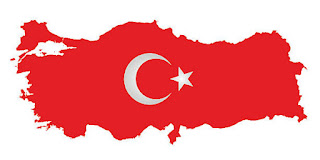Even though Turkey was one of the few countries that has reduced restrictions for foreign travel by November 2021, direct flights had not started between India and Turkey as the Indian Government had prohibited International flights, save the bubble flights, from operating till 30 November 2021. When some countries had lifted restrictions for Indians to travel to those countries it is unfathomable as to why India did not permit direct flights. This ridiculous proscription only served to push up travel cost.
Turkey had mandated that foreigners that are double vaccinated and those who hold a negative RTPCR test result would be allowed into the country. Since I fulfilled the first criteria I got a RTPCR test done in Medall Diagnotics, Perungudi on 8th evening. Even though I had no symptoms at all that would cast even an iota of doubt that the result would come out positive, I was apprehensive, to say the least. Tickets had been booked and hotel bookings made. What if the impossible happened? This morning those dark shadows were dispelled and my result came up as required to enter Turkey. Along with the vaccination certificate and the test result the Qatar Airways Declaration Form was filled up and I was ready to do the final repacking of the bags. I had to ensure that the checked in baggage is below 25 kgs and the cabin baggage 7 kgs.
Before travelling to any country it is a must to read up some of the essential features of that country. And, Turkey is a fascinating country. Some of the history, geography and culture of Turkey got indelibly stuck in my mind.
The Ottoman Empire was founded by Osman 1 in 1299 in Anatolia – Asia Minor. Osman in Arabic is Uthman and that is said to be the source of the term Ottoman. The Ottomans ruled Turkey for over 600 years, till 1923 when the Sultanate was replaced by a Republic by Kemal Ataturk who rapidly industrialised and westernised the country. The Byzantine city of Constantinople was captured by the Ottomans in 1453, putting an end to the 1000 year Byzantine Empire. Constantinople was renamed Istanbul and that became the capital of the Ottoman Empire. At its peak, during the rule of Suleiman the Magnificent between 1520 and 1566, the Empire was renowned for its wealth, power and stability. The Empire then consisted of Turkey, Syria, Greece, Bulgaria, Egypt, Hungary, Macedonia, Palestine, Romania, Jordan, Lebanon, much of Arabia and considerable part of the African coastline on the north. Arts such as calligraphy, poetry, music, textiles, carpet weaving and medicine developed by leaps and bounds. Many surgical instruments in use todays such as pincer, scalpel, lancet, forceps and catheter are a contribution of the Ottoman period. The Empire started fading towards the close of the 17th century. Territories rebelled and broke away. Industrial revolution, Renaissance and growing trade importance of America and India weakened the Empire politically and economically. The erstwhile regions of Eastern Europe, Greece and Middle East were lost in 150 years leading up to 1918 – the end of WW 1.
“Turkey is a European country, an Asian country, a Middle Eastern country, a Balkan country, a Caucasian country, a neighbour to Africa, Black Sea country, Caspian Sea, all these”, said Ahmet Davutoglu, the former PM of Turkey. Turkey, in its present form straddles Europe and Asia. While only 3% of its territory is in Europe the rest is in Asia, the Bosphorus Strait, Marmara Sea and the Dardanelles serving as the dividing line. Turkey is encircled by seas on three sides with the Aegean Sea to its west, Mediterranean to its south and Black Sea to the north. The Sea of Marmara to its northwest is yet another important geographical distinction. There is proof of human inhabitation in Turkey dating back to 2300 BC, making Turkey one of the oldest permanently settled regions in the world. Turks form the ethnic majority while Khurds are the dominant minority. Turkey is home to more than 65% of the world’s refugee population, who are mostly from Africa and Middle East. While 85% of the population speak Turkish, over 10% speak Kurmanji, the Khurdish language. As is to be expected, 85% of the population profess Islam, while 2% are Christian.
Of the Turks, their valour and loyalty, Napoleon Bonaparte had the following to say: “There are two great virtues that glorifies a human being. Man being brave, woman being fair and honest. Apart from these two, there is one virtue for both men and women. To be loyal to their home and their country and even give their life for it. Turks are heroes having this virtue. Because of this, we can always kill Turks. But we can never defeat them.” and “Give me a Turkish Army. I will conquer the world.” These exemplify a Turk – supreme hosts and formidable foes.







No comments:
Post a Comment